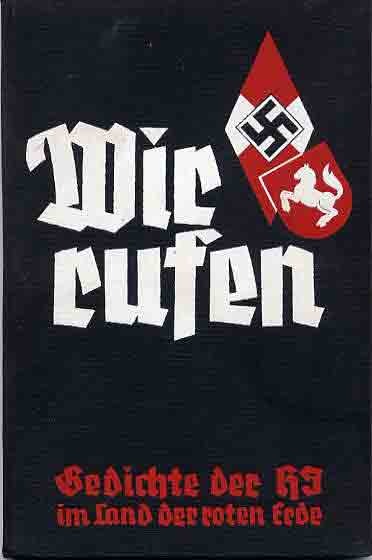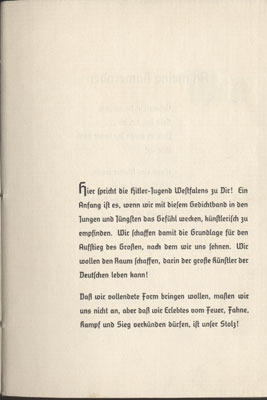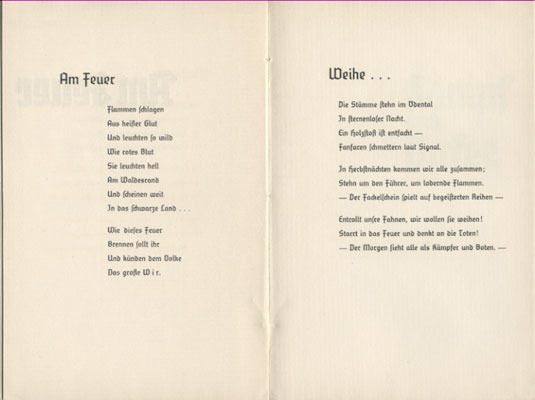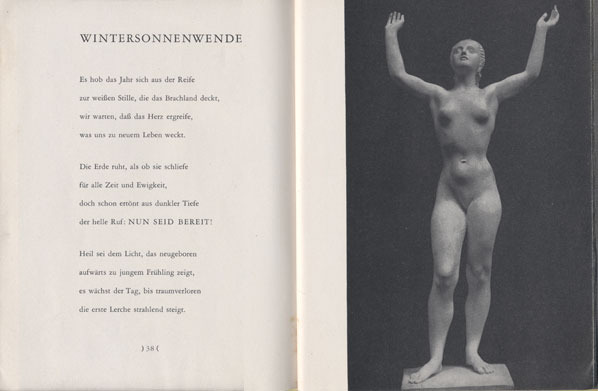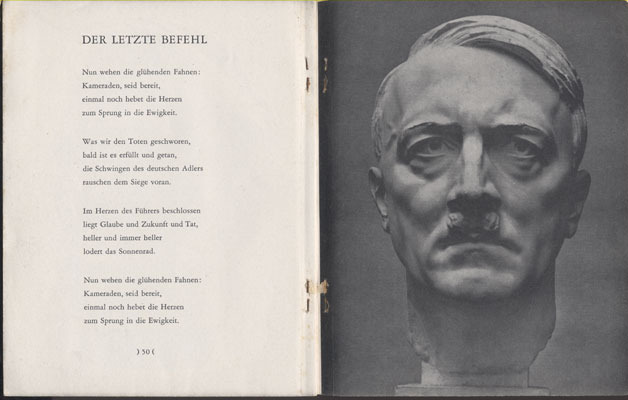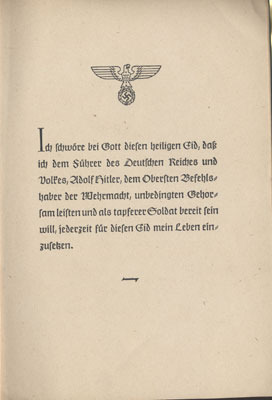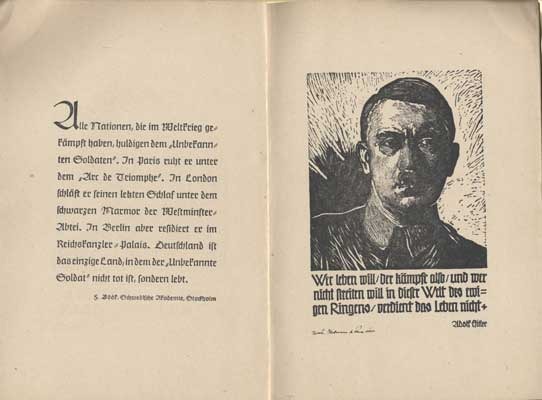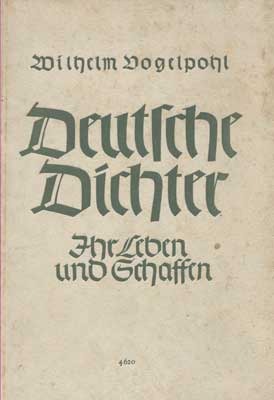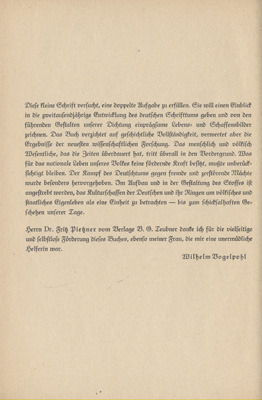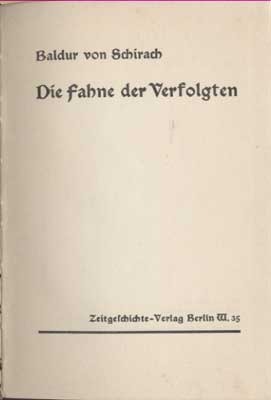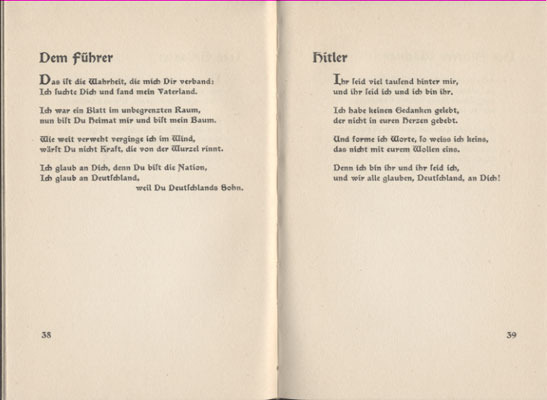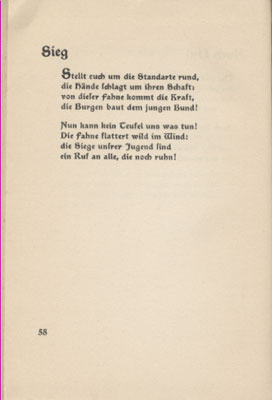Poetry
A country’s body of literature often reflects the political and ideological constraints of the day. In Nazi Germany, poetry in particular became a tool of nationalistic pride and influence over the general population. Books were published featuring poems, songs, and oaths pledging allegiance to the Fatherland and the great battle in which the nation was engaged.
The volumes of poetry displayed contain messages of self-sacrifice, patriotism, victory, and comradeship. Each is tailored to a specific target audience, and in many cases images are combined with words to reinforce the author’s intent.
Wir rufen. Bielefeld: Volksblattverlag, [n.d.]
The goal of this volume of poetry is to present the “experience of fire, flag, fight, and victory” for the Hitler Youth. Popular socialist themes incorporated into the poetry include ideas about comradeship, sacrifice and victory, and the symbolic importance of the flag.
Helmut Dietlof Reiche
Bereitschaft. Berlin: Volk und Reich Verlag, 1940.
This book contains poetry intended to inspire and motivate the German population. The author combines illustrations of Greek statues in heroic positions and poems to draw parallels between Germany and Greece.
Franz Hermann Woweries
Deutsche Fibel. Berlin: W. Limpert, 1940.
Deutsche Fibel contains poems, prose, and oaths to be performed by German soldiers. The writings contain key elements of the national socialist ideology: bravery, honor, reason, and belief.
Wilhelm Vogelpohl
Deutsche Dichter. Leipzig: B.G. Teubner, 1940.
Deutsche Dichter provides insight into the history and development of German writing. Presented are examples of the work of leading poets as a way to illustrate the continued success and importance of German literature.
Baldur von Schirach
Die fahne der verfolgten. Berlin: Zeitgeschichte-verlag, 1940.
This compilation of poetry was intended to create a central text of party poetry that focused on the NSDAP ideals of self-sacrifice and aggressiveness. The author, Baldur von Schirach, was head of two youth organizations: the Bund Deutscher Mädel (League of German Girls) and the Jungen Mannschaft (Young Men).

